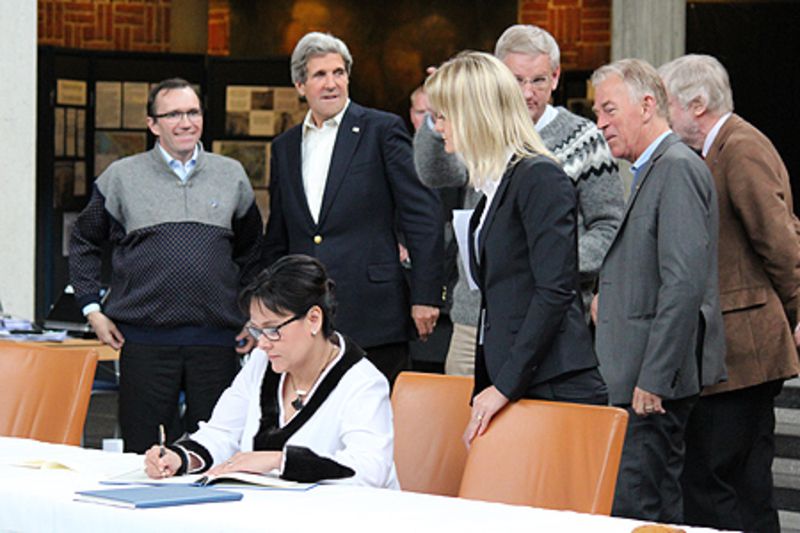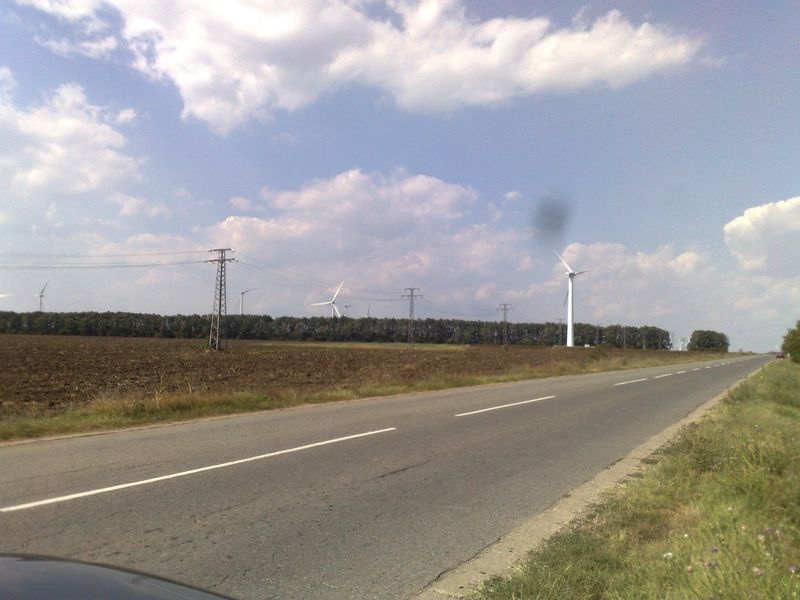Bulgaria cannot explain why it has not yet started to sell its CO2 surpluses
Adelina Marini, October 20, 2009
 According to an inventory data from 2007, Bulgaria has somewhere around 50 mn tonnes of carbon dioxide surpluses, measured according to the targets, set for Bulgaria in the Kyoto Protocol. The target is Bulgaria to reduce its emissions with 8% with 1988 used as a basis which means some 128 tonnes per year for the period 2008-2012. The tendency is an increase of emissions with 1 mn tonnes per year. This means that it is still very hard to make a clear forecast how much the surpluses of Bulgaria would be in the future.
According to an inventory data from 2007, Bulgaria has somewhere around 50 mn tonnes of carbon dioxide surpluses, measured according to the targets, set for Bulgaria in the Kyoto Protocol. The target is Bulgaria to reduce its emissions with 8% with 1988 used as a basis which means some 128 tonnes per year for the period 2008-2012. The tendency is an increase of emissions with 1 mn tonnes per year. This means that it is still very hard to make a clear forecast how much the surpluses of Bulgaria would be in the future.
Now just weeks before the global summit in Copenhagen on which a new climate change agreement should be agreed to replace the Kyoto Protocol, our country has a firm position but still cannot respond clearly to the question why it hasn't benefited so far from the international emissions trade by selling some of its surpluses.
The international price varies between 7 and 8 euro per tonne which, roughly, makes 350 mn euro if we sell the surpluses of only 1 year. An amount which is sufficient to cover the budgetary deficit for this year and even some other shortages in the public finances. According to the expert of the Ministry of Environment and Waters Kalin Iliev, the reasons for Bulgaria not to sell its CO2 surpluses are several.
One is the lack of demand. One of the biggest polluters is the US but they have not ratified the Kyoto Protocol so they cannot be potential buyers of Bulgarian CO2 surpluses. Another potential candidate is Japan. The second reason is that some buyers put additional conditions like requiring the money from the sold emissions to be invested only in projects that help reducing the CO2 emissions. These projects should also be able to reduce the emissions with the same amount that was sold.
But beside all the reasons, Mr. Iliev explained to euinside that, in fact, Bulgaria has not yet developed the institutional framework that will control the emissions trade. For the purpose the government has to take a decision whether and how much to sell and then to decided whether the trade will be realised by a fund, a specialized agency or another body. The expert was determined though that Bulgaria should not sell all its surpluses because it is still unclear how the market will develop in the future. Further more unclarity comes from the differences on the new agreement for Copenhagen.
Bulgaria insists that the surpluses for the Kyoto period should be transfered in the next period  with a long-term perspective for banking and trade by 2050. Beside this, the Bulgarian position insists for clearly signed criteria for comparison of efforts and 1990 to be used as a basis. In other words, the comparisons should take into account the economic development of a country, its technical capacity and financial capabilities.
with a long-term perspective for banking and trade by 2050. Beside this, the Bulgarian position insists for clearly signed criteria for comparison of efforts and 1990 to be used as a basis. In other words, the comparisons should take into account the economic development of a country, its technical capacity and financial capabilities.
Our position is supported by all the new EU member states. The difficulty in deciding whether to sell CO2 surpluses comes also from the fact that it is not clear so far how ambitious the new deal would be and the future price of the CO2 emissions depends on this. The problem with banking of surpluses is also not solved yet. The problem is that the differences between the global players increase with every day just weeks before Copenhagen.
On the 21st of October in Luxembourg the Council of environment ministers will try to reach a common position for the European Council in the end of the month. But the final decision will be taken by the EU leaders in December and the Copenhagen summit starts on the 7th of December and will last 10 days.
More on the problems with the Kyoto successor you can read on the links to the right.
 | © Government of Sweden
| © Government of Sweden | © КРИБ
| © КРИБ | © euinside
| © euinside